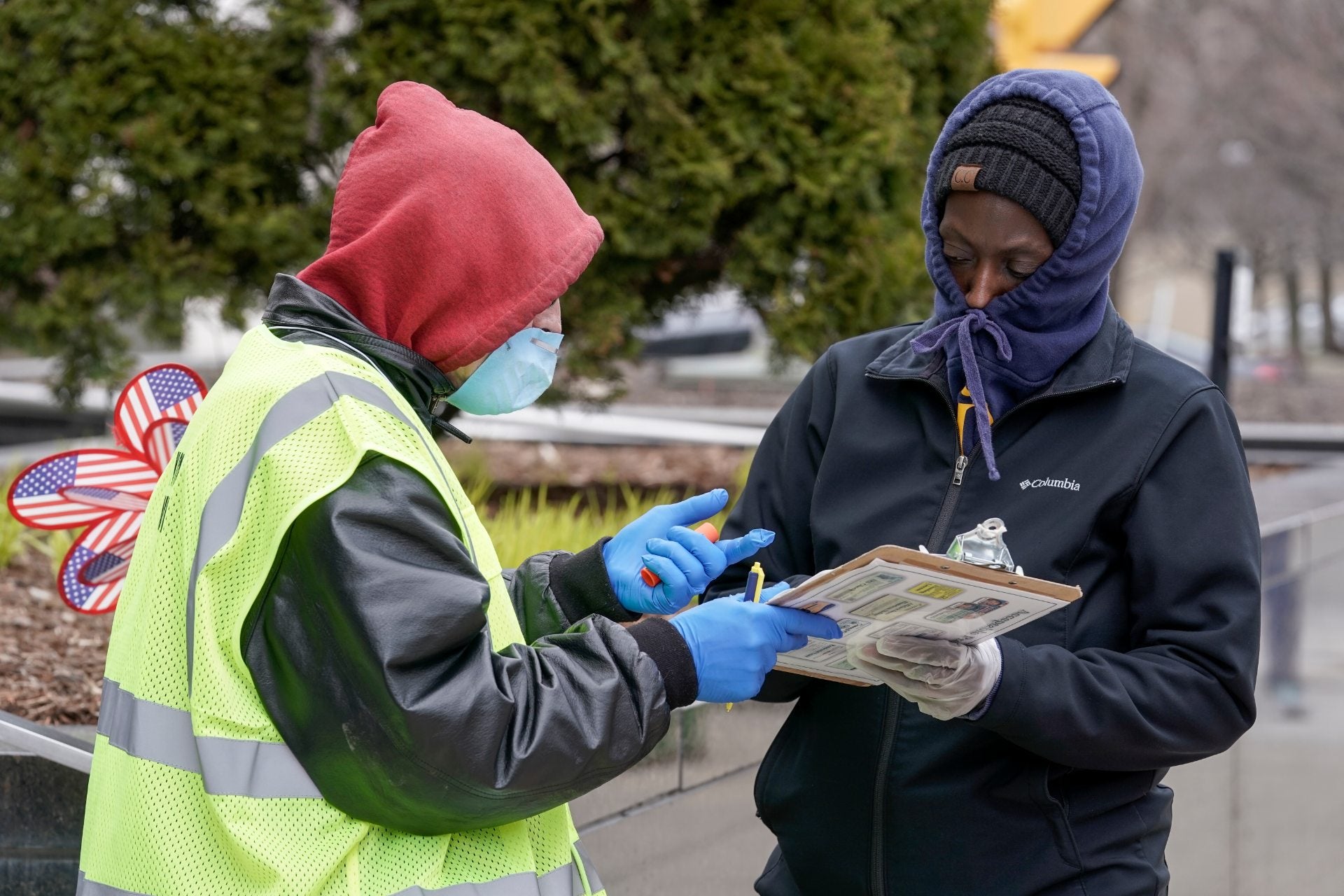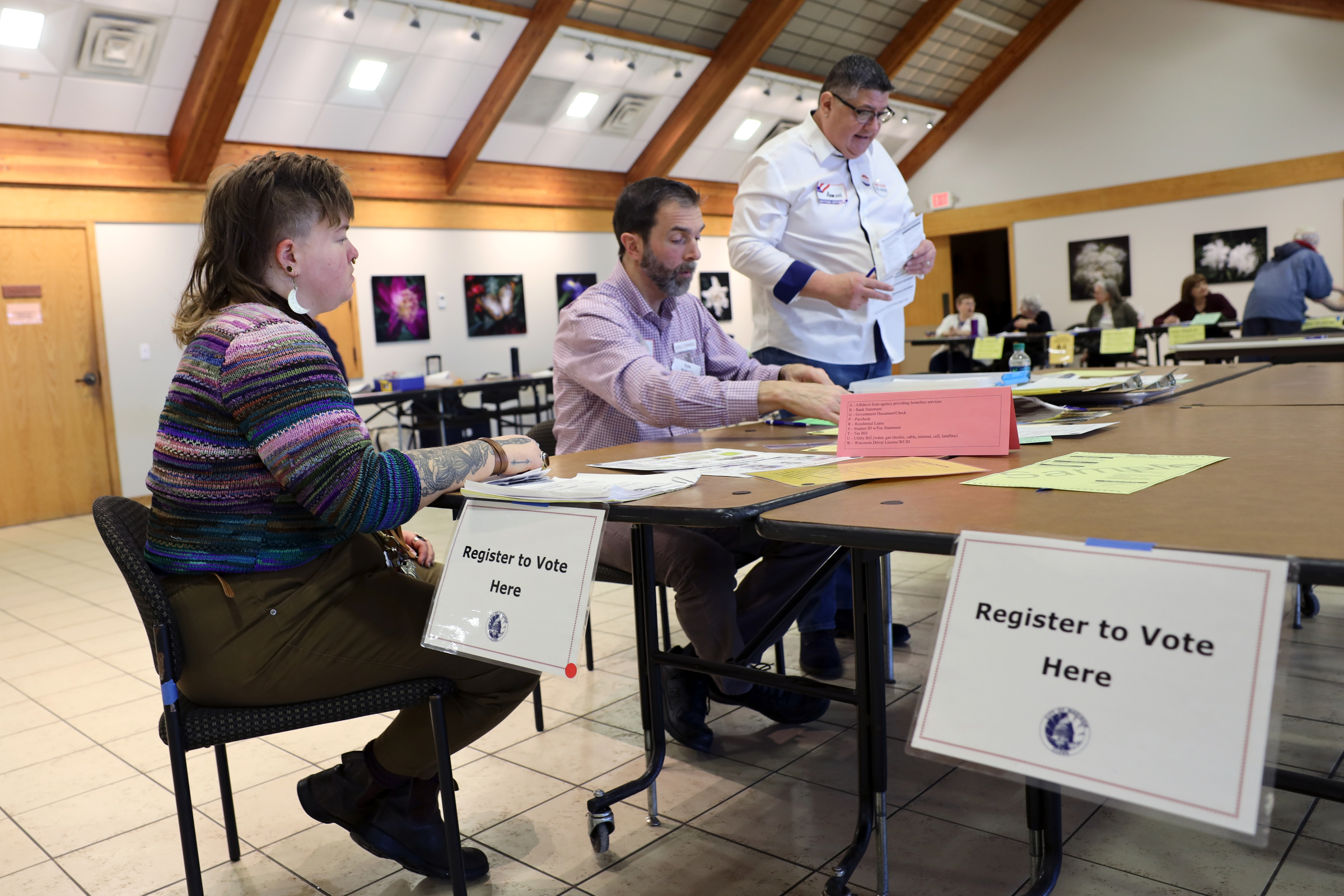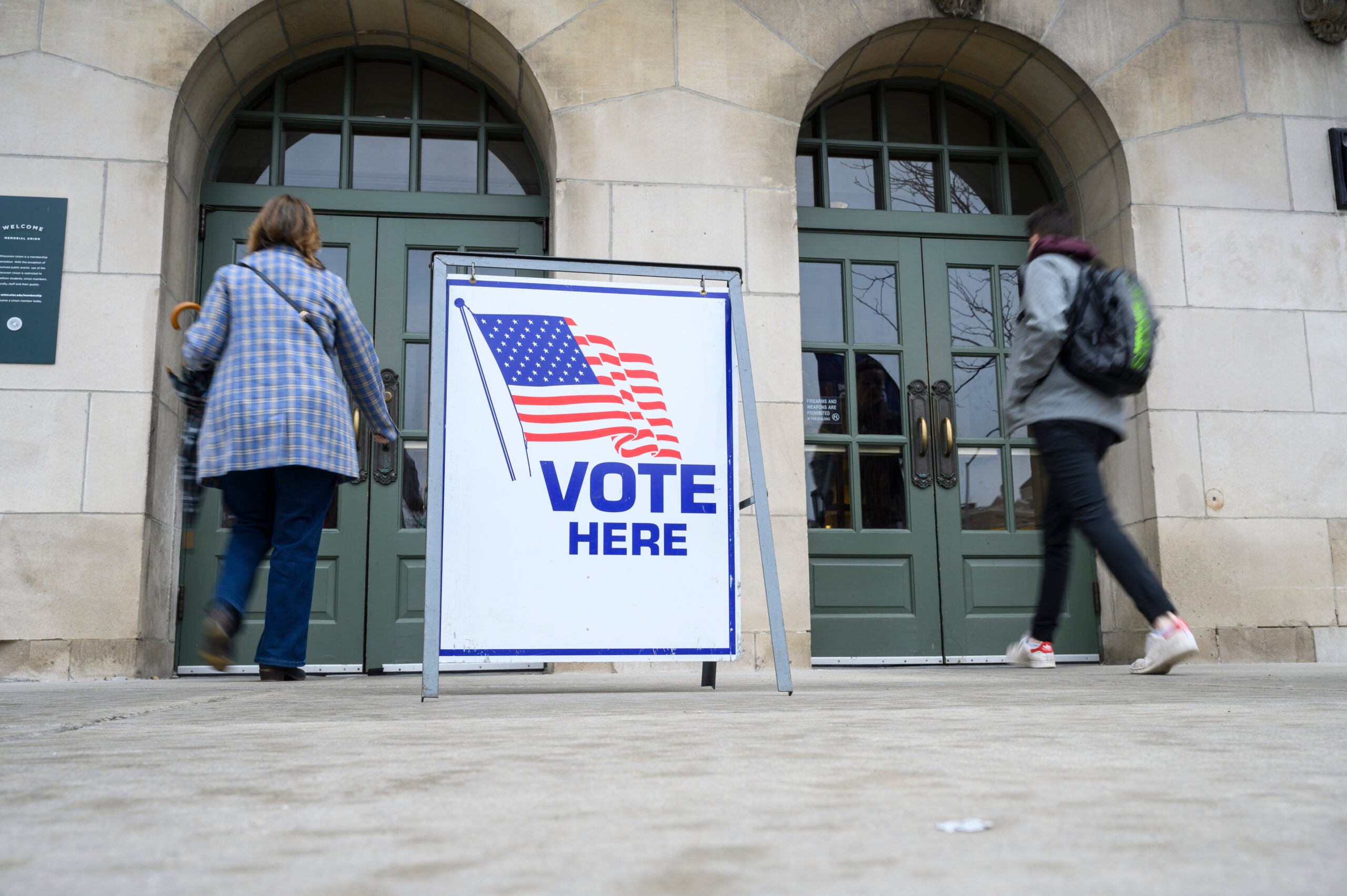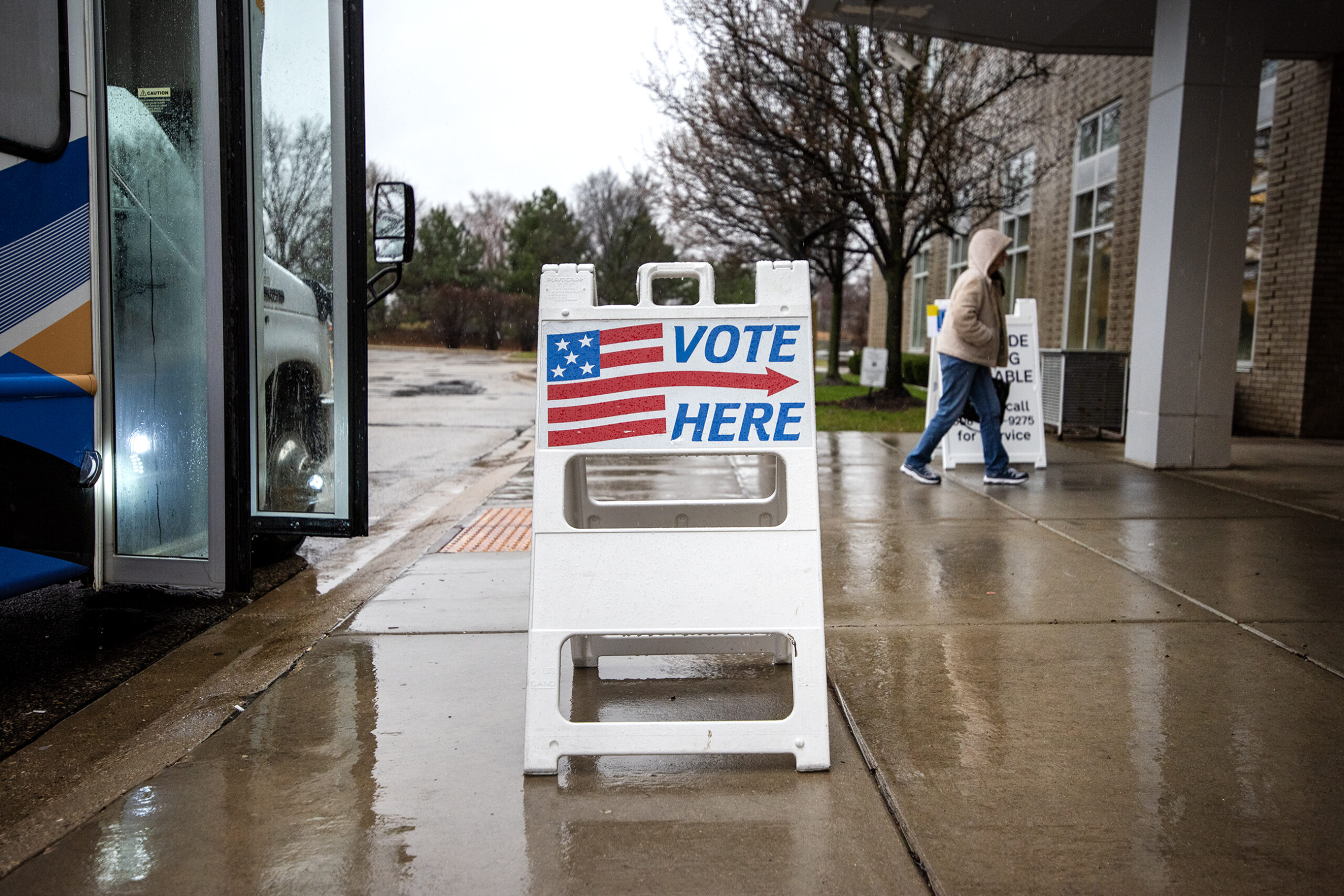Wisconsin election officials say they’ll be able to conduct in-person primary voting on Aug. 11 while Gov. Tony Evers’ new mask requirement is in effect.
The state Elections Commission is conducting additional training and setting additional policies to handle in-person voting during the coronavirus pandemic.
Elections Administrator Meagan Wolfe told WPR’s “The Morning Show” Monday that the Elections Commission voted last week to recommend wearing masks in polling places. But she said poll workers can’t refuse to serve a voter who isn’t wearing one.
Stay informed on the latest news
Sign up for WPR’s email newsletter.
“You cannot add any additional qualifications to voting,” Wolfe said. “So if someone is not wearing a mask, they still must be offered the opportunity to cast a ballot.”
Wolfe said in most cases, poll workers will still be able to verify voters’ identities through their photo IDs, even if they’re wearing masks, since state law only requires that a voter reasonably resemble their identification:
“A voter’s still going to reasonably resemble their photo ID, if you can see their eyes, see their hair, see some distinguishing features about the voter,” she said. “However, if the poll worker cannot determine the voter’s identity, they can ask them to very briefly remove their mask so that they can verify their identity.”
Wolfe said the governor’s mask order includes an exception for confirming identity.
Finding poll workers remains a challenge, as many of those who have worked the polls in past elections are choosing not to do so during the pandemic.
During the state’s April election, a shortage of poll workers prompted a number of communities to cut the number of in-person polling places. Evers sent National Guard personnel to serve as poll workers in many areas.
Wolfe said those who are working next week are training to conduct in-person voting safely.
While the state makes preparations for in-person voting, a large number of Wisconsin voters are choosing other methods to cast ballots.
The Elections Commission said that as of Monday, municipal clerks had received 836,469 absentee ballot applications.
The clerks had sent 821,378 ballots and received 331,097.
There were 645,619 ballots cast in the August 2016 primary, according to commission statistics.
Wolfe said in a statement Monday that voters should make sure to send their absentee ballots as soon as possible, to make sure they’re received by the deadline of 8 p.m. on Aug. 11, and to make sure they are signed and witnessed properly so they can be counted.
Wisconsin Public Radio, © Copyright 2025, Board of Regents of the University of Wisconsin System and Wisconsin Educational Communications Board.




